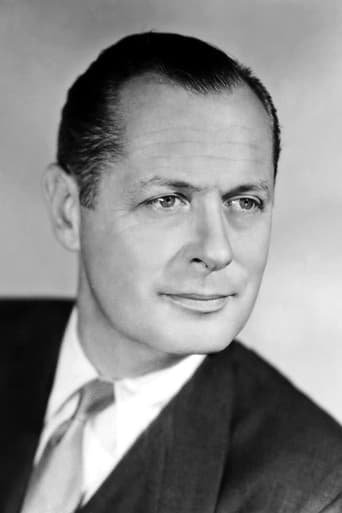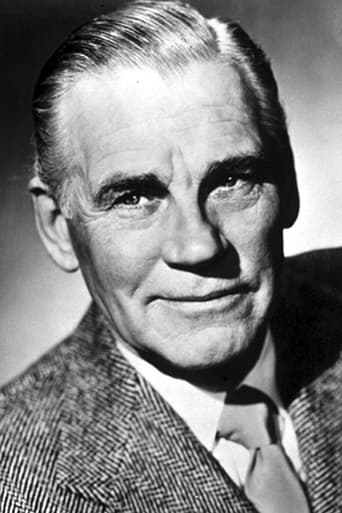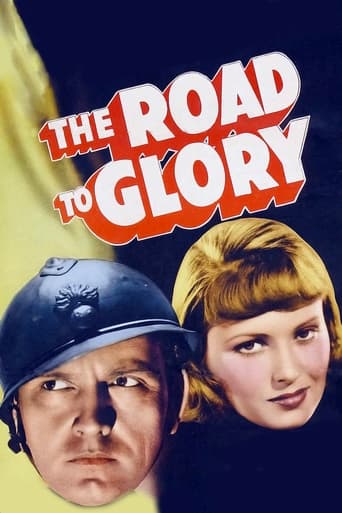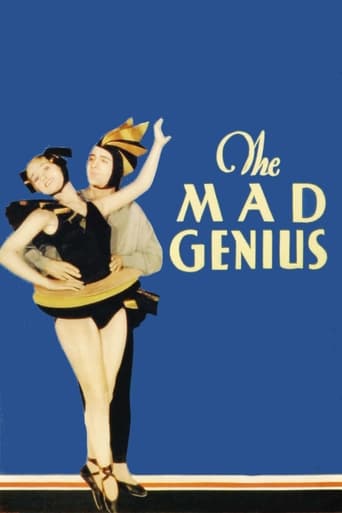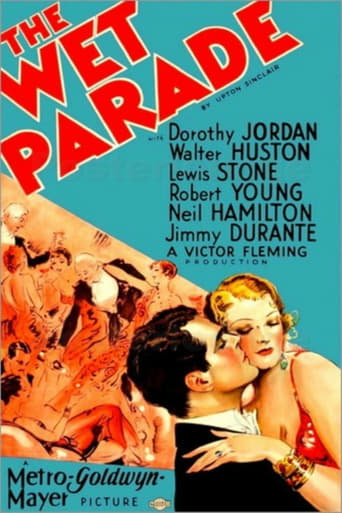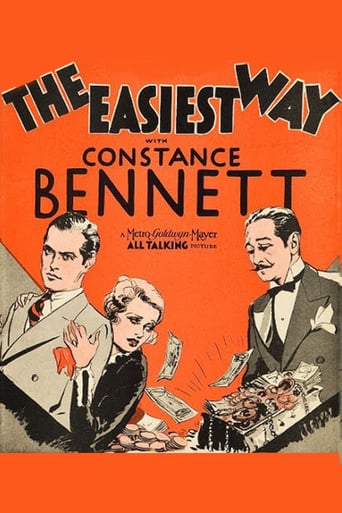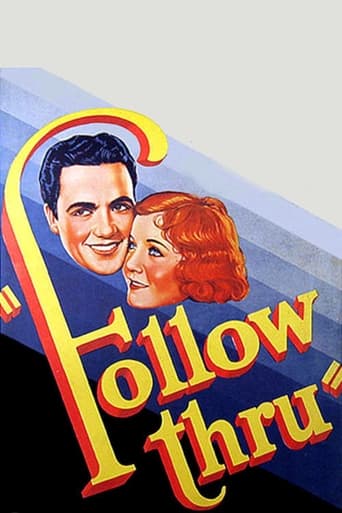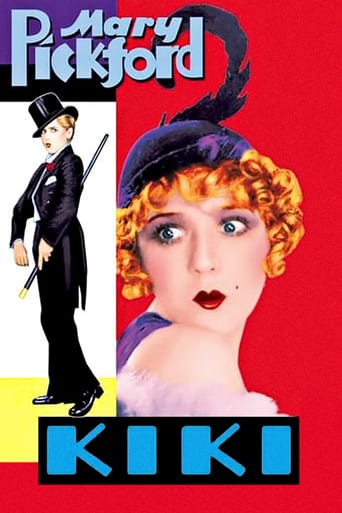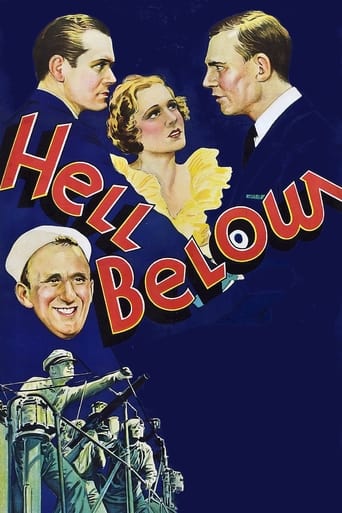
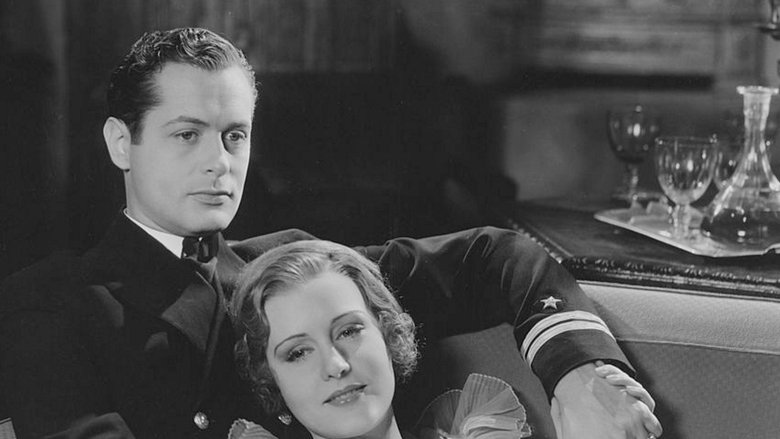
Hell Below (1933)
On leave in Italy, Lt. Tommy Knowlton falls in love with Jean Standish, who's not only married, but is the daughter of his submarine's commander. Friction between the two officers becomes intolerable once at sea and after Commander Toler is forced to abandon Tommy's best friend topside while the sub dives to escape enemy planes, Tommy is no longer able to contain his anger.
Watch Trailer
Cast
Similar titles
Reviews
Good concept, poorly executed.
The film may be flawed, but its message is not.
This is a coming of age storyline that you've seen in one form or another for decades. It takes a truly unique voice to make yet another one worth watching.
This movie tries so hard to be funny, yet it falls flat every time. Just another example of recycled ideas repackaged with women in an attempt to appeal to a certain audience.
The over-excited reviews here on IMDb surprise me, as I found this movie only barely worth watching. Mostly I enjoyed the real-life sequences of vintage ships steaming, exploding, and sinking. But the love story, which completely dominates everything else, is ordinary pot-boiler stuff, about a girl torn between two men, deciding who "needs" her more. Finally, though, one of the guys sacrifices himself in order to be a hero (sigh, fade to black). The love story really tanks, though, whenever Madge Evans is forced to try to sound real and impassioned with one of her "I love you truly, truly" speeches. The comic relief by Jimmy Durante might have been very welcome for 1930s audiences, but his eyeball-popping, head-shaking, and and "Hachaaa!"s look forced and pathetic today. His scene with the boxing kangaroo is a stupid interruption. (I couldn't help thinking how dangerous it would be if the roo made one of his little kicks really count for something.)Now about the writing--did somebody here mention a "literate" script? Please. Its literacy may be measured with examples like these:"Are you all right?" Wiping blood from his nose, "You think this is ketchup, do you?"Trying to fix a leak spewing water into the sub, "Somebody left the bathtub on."All this is not to say The Hell Below is terrible. It's probably a cut above the average war movie of its era (How many war movies were made in the early 30s, anyway?), but if you're looking it up on IMDb to get a sense of whether you should put aside time to watch it, my advice is not to give it a very high priority. Leave it for some late night when you have insomnia. You'll be grateful for it then.
I say it's an action film rather than a war film because it has a little bit of everything - battle scenes, love scenes, and even some comedy thrown in here and there. It also does something unusual for an MGM film of the era - it doesn't get hammy and it doesn't come up with a contrived happy ending for all involved.Lt. Thomas Knowlton (Robert Montgomery) and Lt. Brick Walters (Robert Young) are the best of friends and also officers aboard a submarine during WWI. At the beginning of the film they get a new commanding officer - Lt. Cmdr. T.J. Toler (Walter Huston). Toler is a strictly by the book commander and seems to rub Knowlton and Walters the wrong way just a bit, though more from his very formal nature than by any unfairness in his command. Knowlton falls in love with Toler's daughter Joan (Madge Evans). The complicating factor here is that Joan is married - she tells him so upfront. This doesn't seem to bother Knowton too much until he finds out exactly why Joan let her foot slip.Conflict between Toler and Knowlton builds not only because of Knowlton's romance with Toler's married daughter, but because Knowlton is unfortunately an officer who thinks sentiment has a place on board a submarine in wartime. Comic relief is provided by long-time MGM contract comedian Jimmy Durante and Eugene Palette as two enlisted men on board the submarine. Sterling Holloway plays what at first seems like comic relief to the comic relief but ends up the centerpiece of a very nightmarish and unforgettable scene that reminds everyone that war truly is hell.Highly recommended as a good action film and one that plays to the strengths of the entire cast.
I recommend that movie viewers if in the New York City area go to the Intrepid museum and get some idea of how closed in and cramped the living was for the crews of World War II vintage submarines. How much more so that must have been for the seamen during World War I. It must have truly been hell below.Walter Huston and Robert Montgomery head the cast of Hell Below, Huston as the by the book captain and Montgomery as his free wheeling number two. They're both quite believable as Naval officers and the rest of the cast like Robert Young, Eugene Palette, Jimmy Durante, Madge Evans, Sterling Holloway, etc. fill their roles quite nicely.The silent service got more popular during World War II and after. It's amazing, but I could name a whole slew of submarine pictures like Torpedo Run, Operation Pacific, Hellcats of the Navy, Run Silent, Run Deep and many more and you'll see the same plot situations in all of them. I guess there truly is a limit on situations as well.Jimmy Durante's performance is interesting. He's pretty funny and his scene with the boxing kangaroo while on shore leave is very funny indeed. But I'd have to say a character like him in those cramped quarters is probably very necessary for morale. If you don't have someone like that to break the tension on board a submarine, you ought to get one transferred to your ship immediately.The highlight for me however is Sterling Holloway's death scene. Very similar to Sean McClory's in Island in the Sky. It will haunt you long after you've seen this film.
This was part of a run of old war movies on TCM I caught recently. All of them, (the others were 'Captains of the Clouds' (1942) and 'Pilot #5', (1943)), had the same ending: the protagonist dies heroically on a suicide mission. The movies seemed fixated on the idea that heroes didn't just risk their lives: they sacrificed them. In 'Hell Below', perhaps the first of the great submarine dramas, there is an unnecessary heroic ending in which Robert Montgomery sacrifices his life to complete their mission while leaving the woman he loves to remain with her crippled husband.The story is really about the sort of decisions a commander has to make. Montgomery rebels against his captain, (Walter Huston), who has left a raft with several crewmen, including Montgomery's pal, (and look-alike), Robert Young, (it's the only film they both appeared in and they should have been playing brothers), to die in a hail of German machine gun bullets while the sub dives to avoid being fired upon themselves. Montgomery never forgives Huston. On a later patrol, Montgomery violates orders to maintain silence to start a battle Huston wanted to avoid. Sterling Holloway gets trapped in a section of the ship where poison gas is leaking and Montgomery has to seal him off or expose the rest of the crew to the gas. It's the equivalent of what Huston had to do and he realizes it, even if he doesn't immediately admit it. That's the real dramatic climax of the film, not the comic book suicide mission at the end. The film also features another trend of the times: the borscht belt comic relief provided by a noted comedian, in this case, Jimmy Durante. To the modern viewer this adds nothing to the film. In this case, there's also a glaring mistake in the editing. They apparently felt that the scene where Young and his men get machine gunned to death was a little strong so they sought to leaven it by following it with a clip from an earlier amusement park sequence in which Durante winds up boxing a kangaroo. This is the single most inappropriate and jarring segue in the history of the cinema. I suppose it's not quite right but I really wish someone would put it back where it belongs or delete it all together. One wonders why old Hollywood didn't trust the strength of the stories it was telling to entertain the audience.
